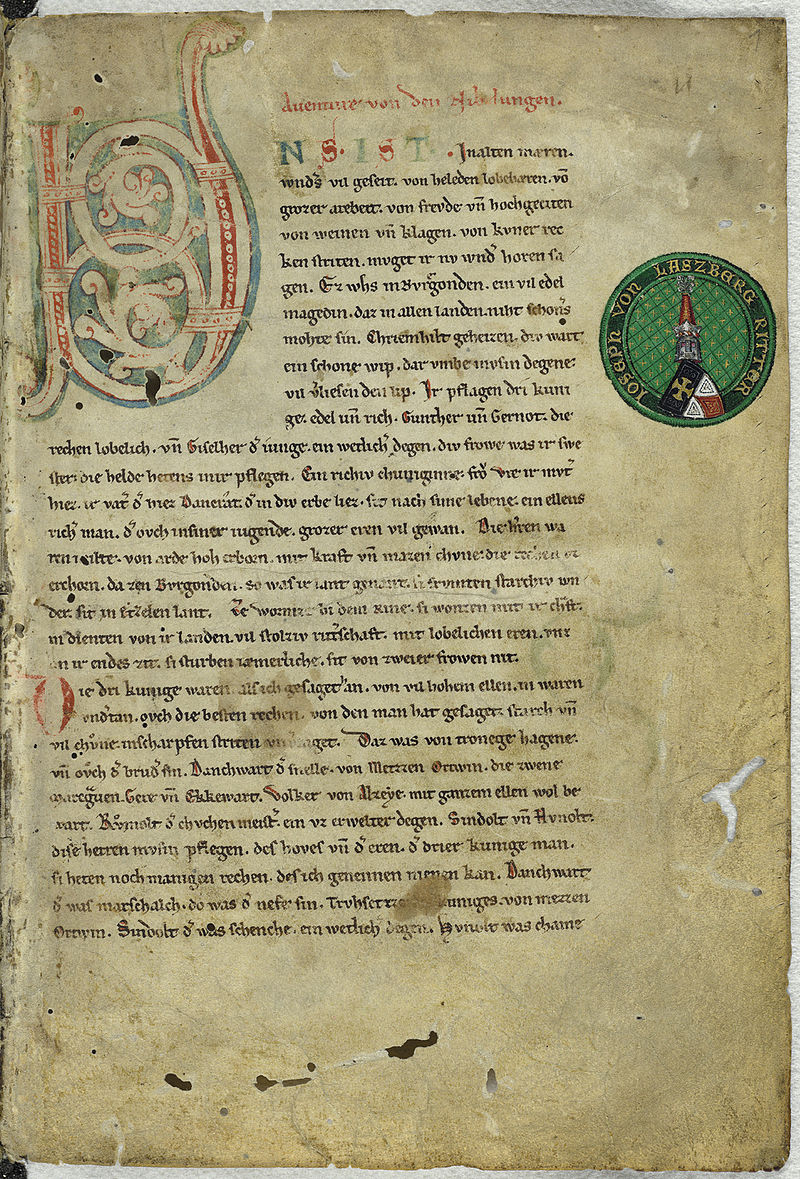 Austrian literature
Austrian literature
One of Austria's most outstanding medieval works is the Song of the Nibelungen, written around 1200 r. by an unknown poet. This epic poem tells a colorful story of passion, fidelity and revenge, taking place at the Burgundian court in Worms. The theme of this epic was adapted by Richard Wagner to a series of operas under the common title The Ring of the Nibelungen.
The first great figure in modern literature was the playwright Franz Grillparzer (1791-1872), who pioneered the use of themes considered Freudian today. His plays are staged to this day at the Viennese Burgtheater.
To other influential dramatists, whose works are regularly reprinted, include Johann Nestroy (1801-1862), known for his satirical farces, and Ferdinand Raimund, 19th-century author of The Misanthrope. Adalbert Stifter is considered to be an influential figure in the development of Austrian prose (1805-1868).
The real development of Austrian literature, however, took place only at the turn of the century, almost in parallel with the work of secessionists and revolutionary discoveries in the field of psychology of human consciousness of Sigmund Freud. Influential writers, who emerged at that time, byli Arthur Schnitzler, Hugo von Hofmannsthal, Karl Kraus and the poet Georg Traki. W apokaliptycznym dramacie The last days of mankind (The last days of humanity) Kraus (1874-1936) he used a whole range of accounts, interviews and press exceptions, whose purpose is to convey the content of art. For those times, it was a very innovative dramatic technique. He was also the founder and longtime main author of the criticism journal Die Fackel” (torch), which played a significant role in the Viennese cultural life of that time. To the most colorful representatives of the Viennese bohemia, occupying the tables of famous literary cafes, belonged the poet Peter Altenberg.
The most prominent Austrian writer of the 20th century was Robert Musil, who was born in 1880 r. in Klagenfurt. He achieved international fame only after his death (died in poverty in Geneva in 1942 r.). His life's work is the unfinished, multi-volume novel The Man Without Qualities, which is a fascinating portrait of the collapsing Austro-Hungarian monarchy and penetrating, a prophetic analysis of the coming 20th century.
Another important figure in 20th-century literature is the Viennese Heimito von Doderer (1896-1966), which was made famous by the Strudlhof Stairs. His most important work, however, remains the Demons, a novel about the fall of the Austro-Hungarian monarchy and the first years of the republic. The author describes all layers of the society of that time, and the work was published in three volumes in English.
Outstanding Austrian writer and essayist, Nobel laureate, Elias Canetti (1905-1994) he is the author of the excellent novel Auto da fe and the fundamental philosophical treatise Masse und Macht, which he devoted to writing 35 years of life.
The Vienna Group (Vienna group), which in years 50. XX w. founded H.C. Artmann, in his sound compositions, in text montages and happenings, it alluded to the works of Surrealists and Dadaists (teeth. frame Art by action later in this chapter). Public outrageous provocations were a regular feature of their meetings, often culminating in police interventions. The group's activities ended in 1964 r., when Konrad Bayer, the most influential member of the group, committed suicide.
Famous contemporary Austrian writer Thomas Bernhard (1931-1989) was born in the Netherlands, but he grew up and lived in Austria. His works are dominated by pessimistic themes, such as disintegration and death. In his later works (m.in. in Chopping Wood) he reverted to youthful polemical attacks on the ossified principles of Austrian social life. Bernhard was also an excellent playwright and novelist. He was influenced by the works of Ludwig Wittgenstein, and even wrote an autobiographical novel about his friendship with the philosopher's nephew.
Perhaps the most famous living Austrian writer is Peter Handke (ur. 1942 r.). His work includes innovative and introspective works written in prose (Left-handed woman) and experimental theater plays (An hour of real feelings).
The provocative novelist Elfriede Jelinek is among the recognized representatives of contemporary women's prose. (ur. 1946 r.), without dialogue and astonishing the reader with the twists and turns of her fantasy. Translations of her novel The Piano Teacher have been published on the market, desire, Lovely, wonderful times and Women as lovers. Friederike Mayrocker (Phantom fan and Farewells), recognized contemporary poet, was hailed by critics as "the bird of paradise of the avant-garde”.